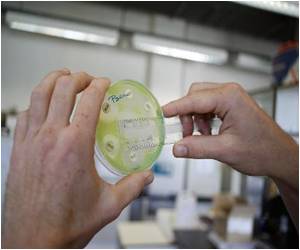A program that provides guidance to primary care physicians about appropriately prescribing antibiotics for children is effective.

"Our findings suggest that interventions with outpatient healthcare providers should include continued feedback to clinicians to remain effective," said study leader Jeffrey S. Gerber, M.D., Ph.D., an infectious diseases specialist at The Children's Hospital of Philadelphia (CHOP).
Gerber and colleagues from CHOP published their research online Oct. 10 in the Journal of the American Medical Association and presented their findings the same day at the IDWeek 2014 meeting in Philadelphia. IDWeek is an annual meeting of infectious diseases specialists.
Because disease-causing microorganisms have been developing resistance to commonly used antibiotics, public health experts advocate more selective usage of those medications. The "antimicrobial stewardship" program in the current study included prospective audits of prescription patterns--evaluating prescriptions based on current prescribing guidelines for specific conditions issued by professional organizations. The program staff then provided personalized, private feedback reports to the practitioners, advising them whether their prescriptions followed current recommendations.
The study team analyzed electronic health records of 1.2 million office visits at 18 community-based primary care offices within the CHOP pediatric network, focusing on prescriptions for common bacterial respiratory infections in children. The researchers randomized the 18 practices into two groups—one receiving the intervention (an hour-long session of clinician education, followed by audit and feedback) and the other group receiving no intervention.
The researchers previously reported in June 2013 that inappropriate prescribing decreased significantly in the intervention group, from 26.8 percent to 14.3 percent, compared to a decrease from 28.4 percent to 22.6 percent in the control group.
Advertisement
Prescribing of broad-spectrum antibiotics, which according to guidelines are typically reserved as second-line treatments, increased over the extended time period, reverting to above-baseline levels. After adjusting the data set for the additional 18 months after intervention ended, the study team found inappropriate prescribing rose from 16.7 percent to 27.9 percent in the intervention group, and from 25.4 percent to 30.2 percent in controls.
Advertisement
Source-Eurekalert















